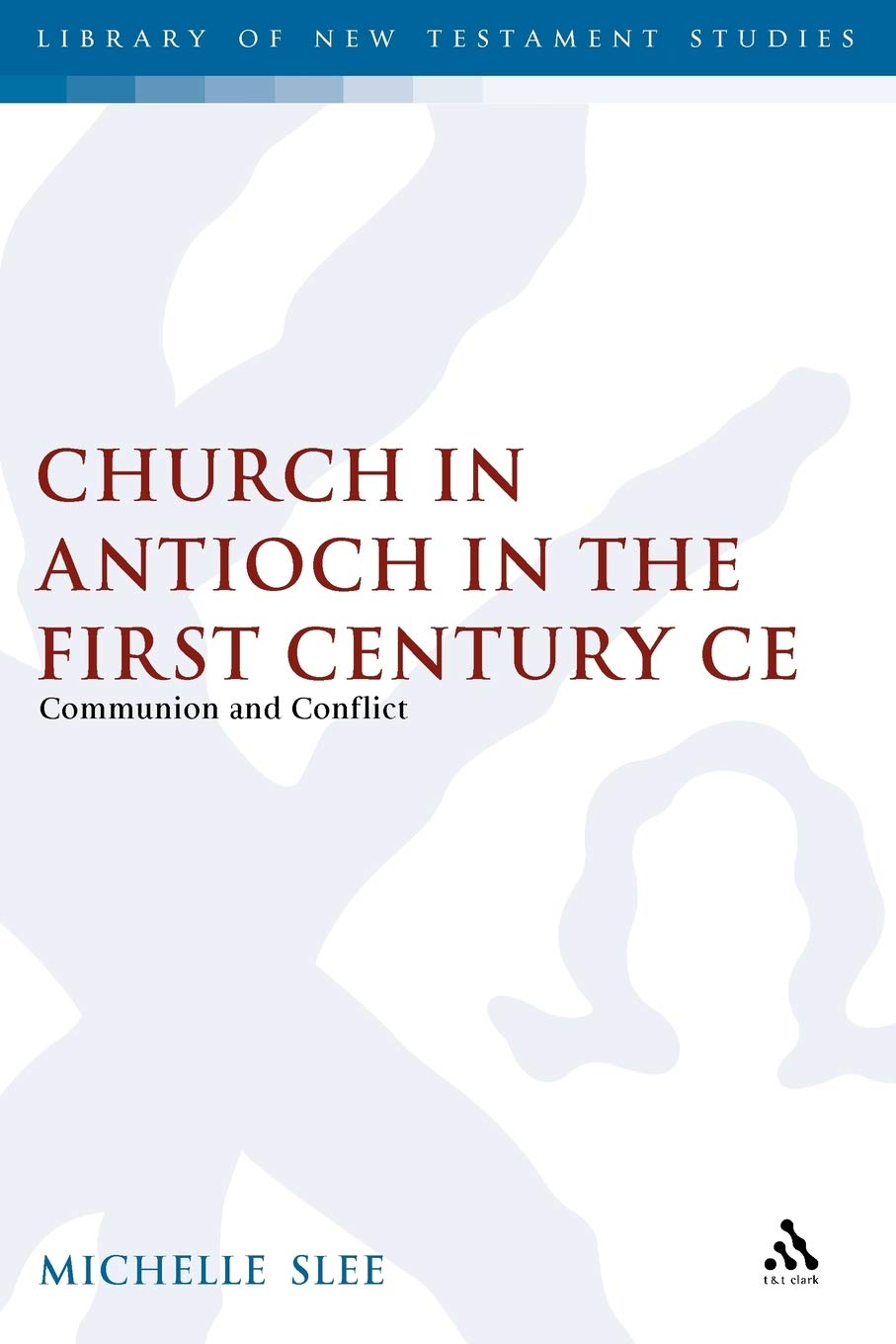This work essentially sets out to examine two sets of Christian communities that existed in the church in Antioch during the first century: one open to Christian converts and one that expected converts to become fully Jewish before becoming Christian. Slee bases this reading on the disagreement that is recounted in Acts 15 and more especially in Galatians 2, and then sees the Didache and the book of Matthew as being written by these two separate communities (the Didache by that of the community open to Gentiles and Matthew by that open only to Jews). The argument is very clearly set forth--outlined at the start, summarized as one hits each chapter, and then summarized again at the end of the book. What could have been difficult reading was very clear.
Slee also does a very good job of summarizing the scholarship surrounding her various assertions, both those for and against her positions. The effect is to give readers a full sense of the opinions out there, but it also to an extent takes from the overall convincingness of her case. Her opinion seems, in such context, merely yet another one rather than the distinctive answer. Indeed, I felt as if she were quite straining in her overall thesis by the end, because so many various "facts" have to line up as she sees them for her overall point to be true.
We have to, for example, accept that the Didache was written in the first century (the earlier the better) and that Matthew was written around 80 CE--and both in Antioch. Many scholars agree with these dates and the place, but if one doesn't, nearly the entire argument falls away. Further, one must accept that James and the Jerusalem church, after making an agreement with regard to how to treat Gentiles, went back on that agreement, thus splitting Paul off from the other apostles and most especially James. Slee even tries to make a case that the letter reproduced in Acts was not written in Jerusalem or at the conference at all--rather, it was created in Antioch by a Didachist faction and the writer of Acts introduced it into his account (the real agreement, which was nevertheless rescinded, was noted earlier in James's speech; because the speech and the letter don't line up precisely, one must be from some other source--as if there would be any point in quoting both if they did line up precisely!).
The center of all of this argument was tablefellowship, and more precisely the Eucharist. The Didachist was open to "Law-free" Gentiles; the writer of Matthew expected all Gentiles to become Jews so that they could share meals and was only recently even open to that. But what is a Eucharist? What does "Law-free" mean? What is Judaism (when no such unitary concept actually existed during much of the first century)? Slee didn't, for me, adequately define these terms. She admits that the Eucharist at this time wasn't well defined, which is likely, but it was unclear to me how it differed from tablefellowship in general or a love feast. If it is only the bread and wine portion of a meal, why would that be special at this time? And if the Gentiles are "Law-free," are they free to worship pagan gods or do other things forbidden in the Scriptures as long as they don't bring improper meat to the meal? The whole issue with tablefellowship with Gentiles was the idea that they were impure based on the possibility that they might be involved with pagan worship, even indirectly, in what they ate. The decree in Acts 15 was to mitigate that. So "Law-free" seems an awkward wording to use, since it imposes part of the law. And how exactly is Matthew a defense of a Jewish Christianity open only to fully converted Jews, when so much of the book critiques the Pharisees, even if it does not (as Slee brings out) critique the Scribes in the way the other Gospels do? (Slee sees the critiques as being actually about Christian factions.) Slee makes her arguments, but in the end, I found many of them unconvincing.







No comments:
Post a Comment